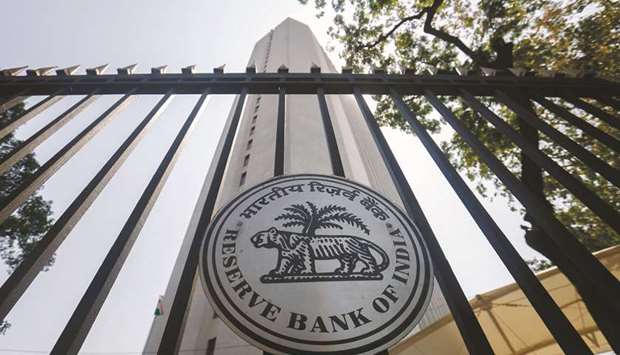The Reserve Bank of India said yesterday it has decided to set up an expert panel to examine the economic capital framework of the central bank, in a move that could prompt a rethink of what constitutes adequate capital reserves for the central bank.
For weeks, government officials have been pressuring the RBI to accede to a range of demands, from easing lending curbs to handing over surplus reserves to the government.
The government and the central bank will jointly decide on the members of the panel and the scope of the panel, the RBI said in a statement late yesterday.
The RBI signalled a compromise with the government by agreeing to study a demand for sharing a part of its capital — an issue that had triggered a public spat between the monetary policy makers and their political bosses.
It, however, did not immediately yield to demands for easing lending norms for weak banks while retaining capital buffers for banks at 9%.
“Both the RBI governor and the finance ministry walked the extra mile,” Sachin Chaturvedi, a member of the board said in an interview to Bloomberg. “They were flexible on several issues.”
The government and RBI have been sparring over how much capital the central bank needs and how tough its lending rules should be.
For a nation that relies on imported capital to fund investment, the reaching of a middle ground is key to retaining investor confidence in the world’s fastest-growing major economy.
India is not alone in witnessing friction between its monetary policy makers and the government. US President Donald Trump has repeatedly criticised the US Federal Reserve for raising interest rates while President Recep Tayyip Erdogan has leaned on Turkey’s central bank. Most economists argue leaving central banks to do their work free of political influence tends to lead to lower interest rates and inflation.
The rupee advanced and bonds rallied yesterday before the RBI board meeting concluded, and amid optimism a common ground would be reached. The currency gained 0.4% to 71.6575 against the dollar, while the benchmark 10-year bond yield fell 3 basis points to 7.79%. One basis point is one-hundredth of a percentage point.
One-month offshore non-deliverable rupee forwards rose 0.4% as news of the board meeting trickled in.
The RBI board discussed Basel regulatory capital framework, a restructuring programme for stressed small businesses, the health of weak banks placed under the so-called prompt corrective action and the economic capital framework of the RBI, the central bank said. The 18-member board advised RBI to consider restructuring of loans of up to Rs25 crore for small borrowers, it said.
Getting the central bank to agree to its demands will help Prime Minister Narendra Modi’s government meet budget goals by using a part of the RBI reserves.
The government also wanted norms for some banks to be relaxed so they can lend easily and keep the economy firing ahead of an election next year. An RBI panel will review those norms, according to the statement.
The central bank — led by governor Urjit Patel — had pushed back against some of the moves earlier, keen to burnish its inflation-targeting credentials and clean up one of the world’s worst bad-debt piles.
That approach has broadly helped anchor inflation expectations in a country where prices have often risen sharply, eroding investor confidence and leading to selloffs in assets.
The six-member monetary policy committee has raised interest rates twice this year and its decision has seen headline retail inflation slow to a 13-month low of 3.3% in October.

The Reserve Bank of India headquarters in Mumbai. The RBI said yesterday it has decided to set up an expert panel to examine the economic capital framework of the central bank, in a move that could prompt a rethink of what constitutes adequate capital reserves for the central bank.
